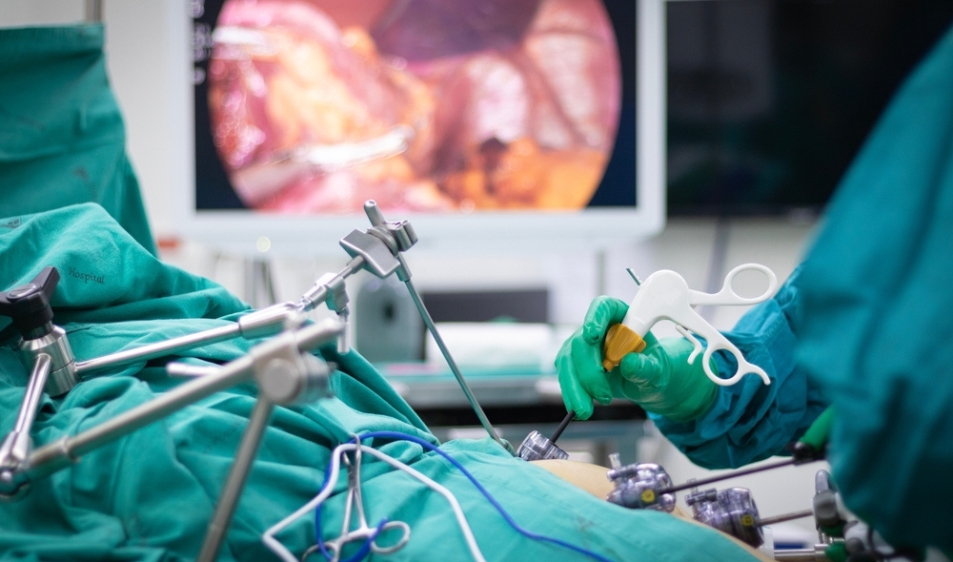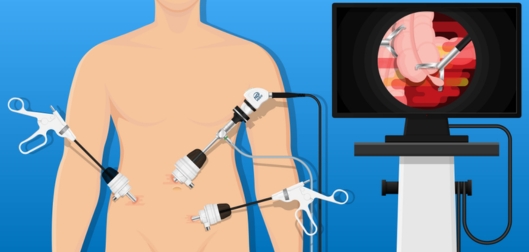Laparoscopic Colon Surgery (Colectomy)

Laparoscopic Colon Surgery in Pune & Mumbai
Laparoscopic Colon Surgery (Colectomy) – A Minimally Invasive Approach
Laparoscopic colectomy is a minimally invasive surgical operation for the removal of a portion of the colon (large intestine) which is afflicted with diseases such as colon cancer, diverticulitis, inflammatory bowel disease (IBD), or polyps. Unlike theconventional open surgery, this new technology utilizes small incisions, shorterrecovery time, and reduced post-operative pain.
Why is Laparoscopic Colectomy Performed?
A colectomy is necessary when part of the colon becomes diseased, inflamed, or cancerous. It is commonly performed to treat:
- Colon Cancer:To remove malignant tumors and prevent cancer from spreading
- Diverticulitis: A condition where small pouches in the colon become inflamed or infected
- Inflammatory Bowel Disease (IBD): Severe cases of Crohn’s disease or ulcerative colitis
- Intestinal Obstructions: Blockages that prevent the normal movement of food and waste
- Severe Bleeding or Perforation: When other treatments fail to control internal bleeding or tears in the colon
- Precancerous Polyps: Large or numerous polyps that increase the risk of colon cancer
How is Laparoscopic Colectomy Performed?
In a laparoscopic colectomy, the doctor creates small keyhole cuts in the belly. A thin tube with a camera (laparoscope) is inserted to show an enlarged image of the colon. The doctor removes the affected part of the colon carefully while saving healthy tissue. The ends of the colon remaining are reattached (anastomosis) or brought to the abdominal wall as a colostomy (as necessary for the patient).
In comparison to standard open surgery, laparoscopic colectomy provides more precision, less damage to adjacent tissues, and an earlier return to normal life.

Benefits of Laparoscopic Colon Surgery
- Minimally Invasive: Small incisions lead to less pain, scarring, and faster healing
- Shorter Hospital Stay: Most patients recover faster and are discharged within a few days
- Reduced Risk of Complications : Lower chances of infection, blood loss, and internal adhesions
- Faster Recovery: Patients can resume normal activities much sooner compared to open surgery
- Improved Digestive Function: Restores normal bowel movement and overall digestive health
Recovery After Laparoscopic Colectomy
Patients usually remain in the hospital for 3 to 5 days, depending on their health. During the initial days, a liquid diet is started before slowly progressing to solid foods. Mild pain, bloating, or tiredness is usual but resolves within a few weeks. Most patients can go back to work within 2-4 weeks and resume full activity in approximately 6 weeks.
FAQ'S
Laparoscopic colon surgery, or colectomy, is a minimally invasive procedure used to remove part or all of the colon. It is performed using small incisions, a camera (laparoscope), and specialized instruments, resulting in less pain and faster recovery compared to open surgery.
This surgery is commonly done to treat conditions like colon cancer, diverticulitis, Crohn’s disease, ulcerative colitis, bowel obstruction, or severe gastrointestinal bleeding that does not respond to other treatments.
Yes, when performed by an experienced surgeon, the procedure is safe and effective. As with any surgery, there are risks such as bleeding, infection, or injury to surrounding organs, but these are relatively low with laparoscopic techniques.
Most patients are able to return to light activities within 1 to 2 weeks and resume normal routines in 4 to 6 weeks, depending on the extent of surgery and individual health factors.




